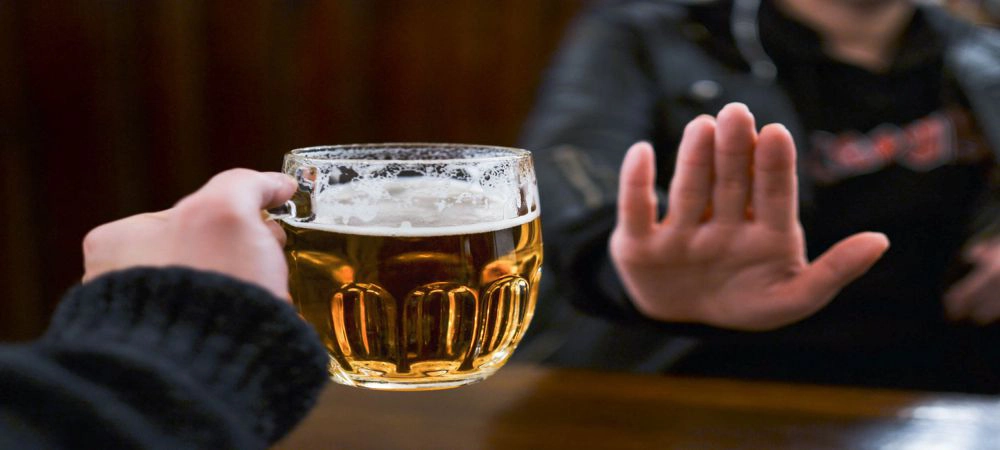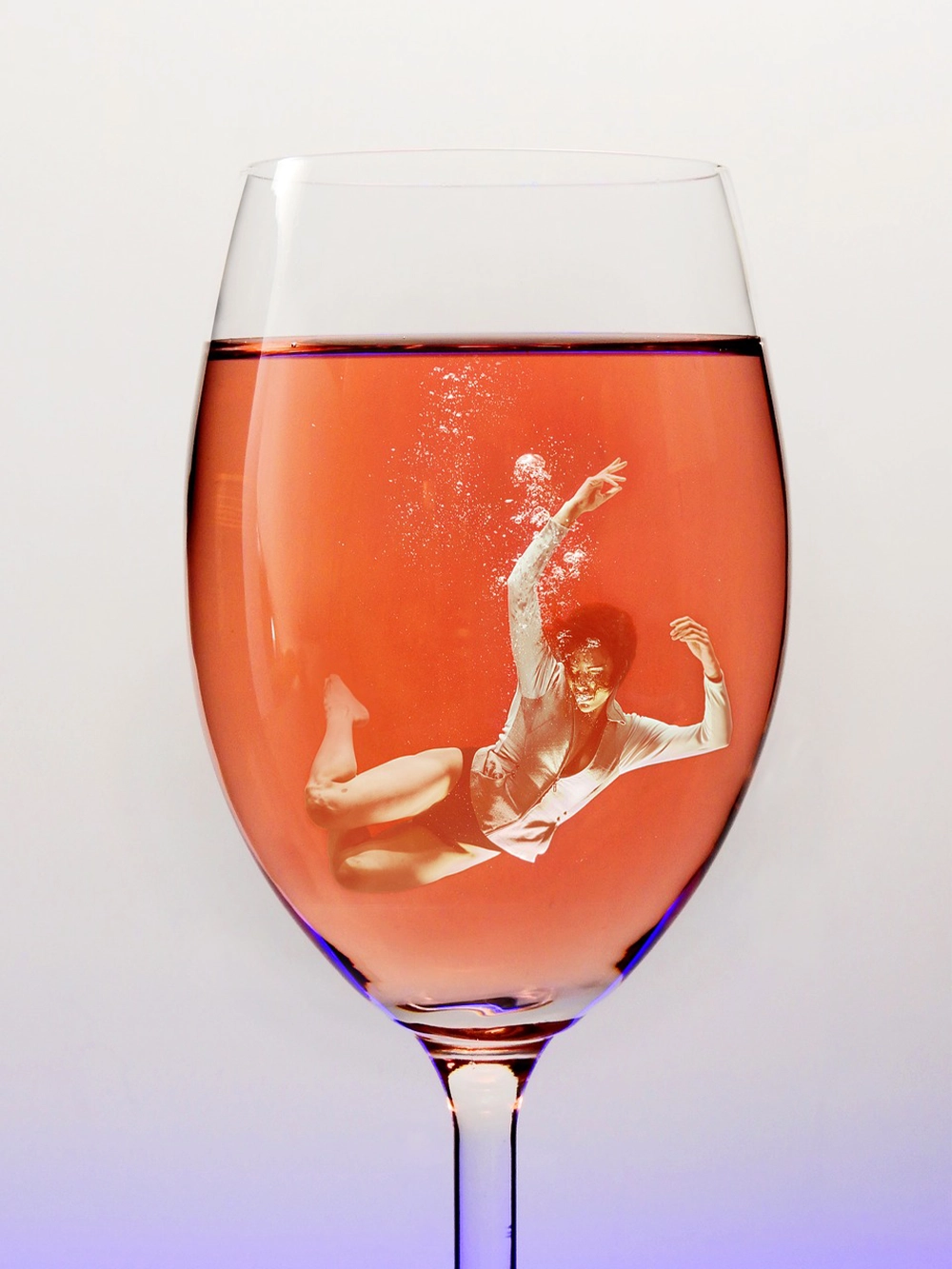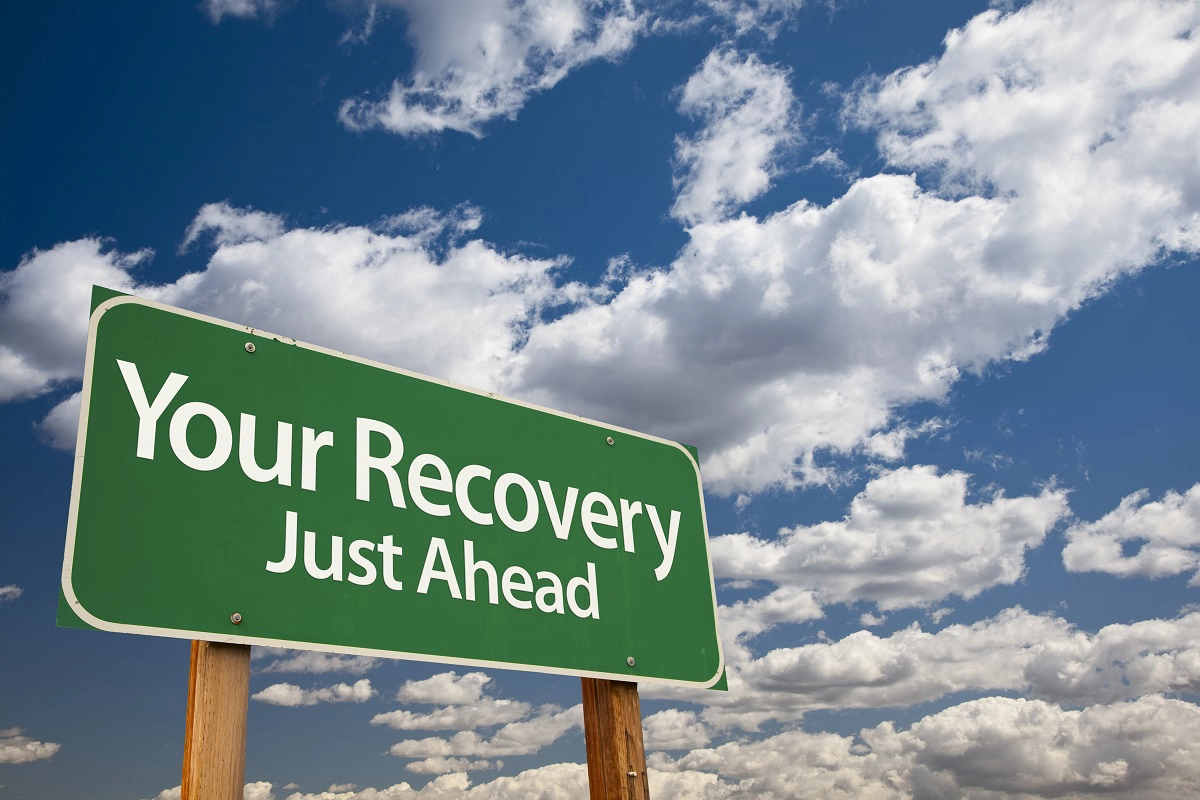How to Overcome Alcohol Addiction
Alcoholism is a severe use of alcohol which makes it hard for the victim to control his/her drinking habits. Another name for alcoholism is alcohol use disorder. Alcohol use disorder exists in three categories or stages: mild, moderate and severe.
Each of these categories has symptoms which distinguish them and are characterized by adverse side effects. Like in many cases, if disregarded, the consequences can be irreversible.
Time and again, people affected by alcoholism feel that they cannot do anything without taking a few “sips.”
When one gets to those levels, everything around them gets affected — for instance, an individual’s professional goals, private matters, relationships, and overall body health. With time, the consistency in alcohol abuse worsens and results in complications.
How Alcohol Addiction Works
A weak mentality or poor willpower does not in any way explain one’s addiction to something. Addiction is in your brain circuitry and not a personal imperfection.
Substances that cause addiction, alcohol, in this case, arouses the pleasure receptors in your brain. As you continue switching on your pleasure circuits, you begin to feel less pleasure so your brain starts yearning for stronger stimuli to acquire those “happy” chemicals.
Consequentially, your brain becomes acquainted with the stimulus after using it over and over. It becomes part of you to the extent that you have to “fix” yourself for you to function effectively.
In Canada, alcohol addiction is turning into an epidemic. Here are the numbers to back that up:
- In 2020, the average annual amount spent on alcohol per household was $1098
- The percentage of Canadians that are heavy drinkers sits at 18.3%
- Stress is a top contributor to alcohol abuse, with 44% of regular drinkers choosing the bottle to deal with stress.
What You Need to Know About Alcoholism
Alcoholism is one complicated problem. There are millions of people struggling with alcohol addiction all over the world.
Once you are an addict, almost every aspect of your life feels the adverse impacts. An alcoholic undergoes all kinds of suffering mental, emotional and eventually physical. It’s at this point where almost all the victims want to know ways of quitting alcohol and its related products.
We don’t have a standard profile of an alcoholic. Everyone, men, and women of different professions, racial, and financial backgrounds, and all walks of life, suffer or at least have suffered from the same conundrum.
If you’re reading this, it’s likely that you’re looking to help yourself or someone around you.
In this guide, we offer tips on ways to quit drinking alcohol and discover the best methods of treatment.
A report by the Canadian Centre on Substance Abuse declares alcoholism is a “National Priority” because it causes the most harm. It’s only second to tobacco. The yearly economic cost of damages related to alcohol across Canada is $14.6 billion.
Alcohol abuse disorder is diagnosed by a professional using a book referred to as the Diagnostic and Statistical Manual of Mental Disorders (DSM).
As earlier mentioned, we have three stages of alcohol addiction according to the DSM: mild, moderate and severe. So that you are diagnosed, you must meet a minimum of two of the 11 symptoms within 12 months.
The Effects of Alcoholism

We’ve all had “hangovers” after one too many bottles of beer. It’s characterized by severe headaches the following morning; a few hangover remedies get you sorted out.
However, continuous drinking, without a doubt, can quickly ruin one’s life. It causes more than financial strains; it can push people away- family and friends, it creates emotional imbalance and in the long run, affects personal health.
Below is a detailed breakdown of some of the side effects of alcohol abuse that are common to most of us. Probably, you already have experienced some of these. It’s however, vital that you know more to get a more unobstructed view and help you learn how to quit drinking as soon as you can.
Emotional Effects
You cannot be a heavy drinker and a happy person at the same time. The inability to stay happy leads to excessive drinking. Learning to stop drinking at this point means you have to summon all your demons and face them.
Alcoholism comes with some less pleasant emotions: they include depression over the loss of relationships because of drinking, low levels of self-esteem and the list is endless.
There are no immediate solutions to feelings like depression except finding the answer within yourself by drinking. Stopping to drink involves coming to terms with yourself, learning ways of solving problems and tackling your feelings in a healthy, productive manner.
Physical Effects
Heavy use of alcohol has loads of negative side effects on the body. Alcohol claims about 8 percent of all Canadian deaths in individuals under age 70. That’s according to the report of a study by the Centre for Addiction and Mental Health.
Liver cirrhosis, a condition which damages the liver is by far one of the most life-threatening and common side-effects of alcohol use disorder.
The work of the liver is to filter toxins from the blood. It further breaks down fat and aids in the proper digestion of food. Excessive alcohol can result in liver cirrhosis and potentially expose the victim to cancer of the liver.
Alcohol addiction also increases blood pressure and can cause hypoglycemia. Other complications such as digestive disorders, short-term loss of memory and even full “blackouts” are all consequences of alcohol use disorder.
Note
“Some health benefits of alcohol may fool you. A glass of wine during dinner, for instance, enhances a healthy heart. However, you can achieve the same feat by eating right and doing regular exercise. It’s possible to live a healthy alcohol-free life.”
How to Stop Drinking Alcohol
Are you out there struggling with alcohol abuse? Moreover, you can’t tell whether or not you are an alcoholic. Are you thinking of quitting drinking? Must you stop drinking? If your answer is yes to the above questions, then you need to quit alcohol.
Stopping to drink is not the hardest thing to do; trust me. Neither is what follows after you quit drinking. Attempting to stay sober in the first place is the hardest part of the journey to sobriety.
Despite all these, people can and have recovered from alcohol addiction more often than you may have imagined.
The point is, you must have a desire to quit; however, it’s not going to be a walk in the park.
We have put together crucial steps involved in alcohol addiction treatment to guide you on ways of staying sober.
A. Concede that you have a drinking problem
If you are a victim of alcohol use disorder, there is a high likelihood that you are aware of this problem. Accepting that you are an alcoholic is the first step; you will be doing yourself a huge favour.
If you find yourself overwhelmed by circles of thoughts, you can’t stop comparing your level of drinking to that of others’, consider trying the following.
- Know the right questions to ask. The moments you start questioning yourself whether you are an alcohol addict or not, chances are you are one. Instead, questions like: Is this the life I want? Should ring in your head, if you can get the right answer for that, you are making the right steps towards recovery from alcohol use disorder.
- Stop comparing yourself with other alcoholics. The comparisons do not do you any good. They make you think you are better than other victims of alcohol addiction when in the real sense you might even be worse. Look at yourself as a person, unique in your way and not as a group. There is no better addict!
- Paint some pictures of the future you want. Three years down the line, do you still want to be the same “Dave the drunk?” As long as you can find the right answer to such cases, you are on the right path. It’s that simple. Admit you have the problem and start treating it.
B. Recognize why you must stop drinking
It’s typical for any human being to prefer instant fulfillment. Long-term benefits of quitting alcohol do not motivate especially if you look at it in terms of preserving better health for the future. Quitting drinking is not an exception.
Let’s look at some short-term benefits of drinking that as much as they keep us “momentarily happy,” have negative impacts on us in the long run. Relate to these cases and understand your next move, short or long-term.
- Engage in constructive Discussions. Conversation and interaction with different people make us grow. Well, you don’t get to enjoy those benefits when you are drunk. It’s okay that you will have company, and share jokes with fellow “drunkards,” but none of the talks will build you as a person. Alcohol doesn’t give room for any substantial change from talking. It’s possible that you find it terrifying to meet new people without drinking alcohol; however, the damage that results from alcohol is horrifying.
- Make good use of your money. Let’s say you spend $100 weekly on alcohol, after six months you shall have spent $2400 on drinking. Look at those numbers in years; you can use those large sums as an investment. It even becomes worse when you develop alcohol-related complications, where you can spend up to $700 monthly for treatment.
- Sleep misconception. Well, alcohol is a known depressant; it makes you tired. Hence, sleep. However, it also interferes with your sleep patterns, disrupting the balance of the body. That’s another damage associated with alcohol use disorder. You must know that when you quit drinking, the quality of your sleep will improve drastically.
Quitting alcohol is the best and healthiest choice you can make as a person. There are several benefits associated with stopping to drink. They include but are not limited to improved liver function, reduced levels of cholesterol, improved immune system, a more explicit memory, and an enhanced emotional balance among other countless long-term benefits.

C. Make a desire to stay sober your priority
If you want to quit alcohol then quitting must remain your number one priority. Come up with rules that will help you with this quest and remember not to break your rules. If you commit partially, that’s a commitment to failure, so give it all.
The rules can be simple things like avoiding routes that go through “drinking” streets. No more bar nights, no to the “one drink only” devil. Be on your toes with your quest for sobriety until you are confident that your drinking problem is over.
D. Cut off Links With Your Drinking Partners
Here’s the part most heavy drinkers find hard to deal with — cutting off drinking friends. Alcohol may be a significant part of your social life; however, hooking up with friends for a few bottles doesn’t happen quite often. The decision to cut them off doesn’t have to be drastic.
The first step is telling your crew that you cannot drink for a while. The reason is you won’t be around or something like that. A second step can be drastic; you cut them completely- any person with whom all you can talk about is drinking.
It’s understandable how much it is hard to let go of people in your social circle. I also know this is a decision that you must consider, especially when it matters.
There is no point in having a strong social circle if it’s only taking something from you other than adding value. Therefore, if you decide to quit drinking, then associate with those who share your ambitions.
E. Let People Know The Choice You Have Made
Here’s what I’m doing-quitting alcohol. Let people know. How does this help? Well, first it adds much accountability to your goal, furthermore, it’s a hint to those friends who are planning to go and get wasted with you that you no longer belong to the crew. The disinterest is enough.
F. It’s Not an Easy Sail: Be Ready
Usually, the first three days are the most painful part of the recovery process. As soon as your body starts to rid itself of alcohol, instances of acute withdrawal begin to creep in – unpleasant.
Here’s where the addicts of alcohol start feeling difficulty in recovery, and professional help comes in handy.
Despite the difficulties, the benefits of stopping drinking, when you start realizing them, are the best.
As soon as you start feeling the withdrawal symptoms, it can only mean that your healing process is underway. The withdrawal symptoms can begin to show as early as six hours after your last drink. Here’s what you are likely to experience:
- High temperature
- Increase in blood pressure, the rate of impulse and breathing
- Too much sweating
- Tremors
- Sleeplessness
- Seizures are possible though they only occur in extreme cases. These seizures are life-threatening in some instances.
G. You Need a Change of Attitude
Remember that the first step is to admit that you have a problem. However, that’s not enough; there’s a need for change in your attitude concerning your situation.
You must develop that welcoming attitude as people, many people who care will try to help you. Please don’t be mad at those who are trying to help. Don’t feel sorry for yourself, it’s likely that there are worse cases than yours. Instead, develop the right mindset, and realize that you are making steps towards a better life with your recovery process.
I’m not saying that it’s an easy thing to have the right attitude when dealing with such awkward moments. However, if you want to make it even less hard, then it will be a good thing if you develop a positive attitude.
H. Visit the Rehabilitation Centres
Trying to quit drinking on your own could prove difficult. It doesn’t mean that that’s the end of life for you. You can opt for professional assistance to fight this evil.
Most rehab programs have a provision for both outpatient and inpatient programs, settle for the one that best suits you and start the process. Sometimes, after a little chat with the professional, he/she may recommend a program for you. As long as you can afford it, it’s good to heed to their advice.
Another critical point about rehab as a treatment option involves comparing several treatment facilities. A key factor in settling for a specific rehab center depends on the type of addiction and the lifestyle you lead. The approach to treating your alcoholism must not necessarily be the same as that of the other addict.
Cutting Back on Alcohol vs. Quitting: Which is Better?

Now that we’ve extensively treated how to overcome an alcohol addiction, it’s worthy of note that quitting outright isn’t the only option available to you. Some people decide, instead, to merely cut back.
But, is merely cutting back better than learning how to overcome alcohol addiction and actually doing it? To answer that, let’s first check out the difference between the two.
To quit alcohol is to say that you’ve had your last bottle. Once you decide to quit, you’re pretty much done, and you’re not going back. On the other hand, cutting back is more of a move to slow down your consumption levels.
Perhaps, you’re trying to lose a few pounds or get your blood pressure under control. Either way, you’re not entirely ready to put your bottoms down yet.
Now, when you cut back on your alcohol intake, your life will become significantly healthier. This depends on how much you cut back, but still, you wouldn’t have to worry so much about the steps to get rid of alcohol addiction.
However, if you’re an alcoholic, things are a lot different. You see, being an alcoholic means you can’t control your intake of liquor. As such, pursuing the option of cutting back instead of seizing the bull by the horn might not work.
Nevertheless, if you’re not quite at that stage yet, we’ve got some useful tips to help you cut back on your intake.
How to Cutback on Alcohol
Here are the steps to help you reduce your alcohol intake
Define your drinking goals clearly
If you’re not worried about how to quit alcohol addiction, the first step to cutting back is to set clear goals for yourself. How many bottles will you have per day/week?
How far apart will they be? Whatever it is, ensure that you put them down very clearly. In our opinion, you shouldn’t exceed a bottle each day. Alongside that, you should have days you don’t drink at all.
Record your drinking
Alcohol isn’t exactly famous for preserving memories. So, when you do drink, write it down. That way, you can know how many bottles you’ve had. This will help you keep proper track of your goals.
Remove alcohol from your home
If you have several bottles of booze stacked side by side in your fridge, that’s a problem. This is because you’re very likely to simply drink them, even in the middle of the night. However, when they’re out of sight, you wouldn’t have such access even when you get the cravings.
Slow down
It takes a few seconds for your brain to recognize that it’s full. It’s only natural. As such, if you keep gulping down shot after shot, you might not quickly process the fact that you’ve had enough. So, drink slower. You could even take half an hour between each drink.
Widen the gap between your drinks
Instead of simply having one day between, you can try one week or two. You can try a month and keep extending systematically.
Granted, this method is more geared towards helping you quit alcohol. As such, it’s entirely optional. But remember what we said. You can live an excellent and healthy life even without liquor.
Government-Funded Programs That Help In Alcohol Use Disorder Treatment
Treatment options for alcohol abuse and addiction include:
National Native Alcohol and Drug Abuse Program
It is a government-funded rehab program for substance addicts. Over the years it has organized treatment programs for alcoholics in First Nations communities. It has a blend of mainstream and culturally considered treatment options which make it unique.
30-Day Alcohol Treatment Programs in Alberta
Saying that alcohol is a problem in the world is an understatement. It is, in fact, a global disaster. Alberta is one region that is massively affected by alcohol abuse disorder.
This program is not necessarily an alcoholism treatment. However, the help issued here is what the alcoholics need. There are 30-day alcohol treatment programs all over Alberta.
Just like the names suggest, the 30-day alcohol treatment program in Alberta ends after precisely 30 days. The treatment durations are extendable as long as the patient requests to stay a little longer in the program.
A good number of these 30-day alcohol treatments in Alberta use a treatment program based on a 12-step treatment program. The success rates of these programs are low.
Drugs and Alcohol Assessment Programs In Canada
This evaluation process has existed for some time. It’s a process that has and still helps an addict, together with their families find the best rehab and services that will help treat their addictions.
Here’s what happens: The addict visits the counsellor who can access numerous alcohol treatment resources. These counsellors are familiar with addiction and the types of treatment procedures that are available.
While visiting the counsellor, the victim of alcohol use disorder answers a series of questions which helps the counsellor gather enough information that will help him/her determine the best course of drug treatment.
This process is not limited to the addict only as the family is free to join so that they know precisely the progress of their loved ones.
What are the Options for Treating Alcoholism?
We have several types of alcohol treatments available. These include:
Medical Detox

It’s the first step in alcohol treatment programs. In this phase, the body gets rid of alcohol contents and other toxins from itself with the aid of a medically supervised program which at the same time addresses the risks and symptoms of withdrawal which shows during detox.
Inpatient Treatment
It’s another name for residential treatment; this sort of therapy dictates that the victims live at an alcohol rehab institution as they take part in the recovery program.
Partial Hospitalization Program
It’s a program meant for people who have finalized their residential care; these people are ready to move to the next stage of help.
IOP
(Intensive Outpatient Treatment), is for patients who seek some flexibility of outpatient care, however, such patients are supposed to continue with the all-day treatment throughout the week.
Outpatient Treatment (OP)
This is an independent treatment program for alcoholism. At this point, the patient lives in their homes instead of alcohol treatment centers. The victims are free to continue with their work. The treatment sessions depend on the individual’s schedule and free days.
Medications Used in Alcoholism Treatment
Most medications used in the treatment of alcoholism serve one primary purpose; they help reduce cravings for alcohol, reduce symptoms of withdrawal and or promote a negative feeling when one consumes alcohol. The medications include:
- Acamprosate – These meds lower cravings for drinking as well as the symptoms of withdrawal.
- Naltrexone – Minimizes cravings for alcohol
- Disulfiram – Promotes unpleasant effects when one drinks alcohol. The feelings include headaches, nausea or vomiting, and others.
What is Alcohol Withdrawal Syndrome (AWS)?
Alcohol withdrawal syndrome (AWS) is the name given to the signs that occur as soon as a heavy drinker stops drinking or significantly reduces the consumption of alcohol.
During AWS, the victims experience a mixture of physical and emotional signs. These signs range from anxiety, and fatigue to feelings of vomiting (nausea). Sometimes these symptoms are severe to the extent that the victims can have seizure attacks and even hallucinations. We have instances where alcohol withdrawal syndromes are life-threatening.
Symptoms of alcohol withdrawal syndrome
As early as six hours from the last time of drinking, these symptoms can start showing. The victim can experience any two of the following symptoms.
- Anxiety
- Tremors
- nausea
- headache
- Increase in heart rate
- Profuse sweating
- confusion
- Sleeplessness
- high blood pressure
- Nightmares
These symptoms may become worse within two to three days. Some milder symptoms can be persistent for weeks in certain individuals. These signs are noticeable in the morning when you wake up with reduced alcohol levels in your blood system.
Delirium tremens (DT) is the most adverse sign of withdrawal syndrome. The symptoms of delirium tremens include but not limited to:
- High levels of confusion
- Agitation
- Increased fever
- Seizure attacks
- There are also cases of tactile hallucinations, like itchiness, burning, and or numbness that is not “real.”
- Sometimes, the victims hear non-existent sounds
- There are also cases of visual hallucinations or imaginary images
It is advisable that you call for help or rush to the emergency room when you experience symptoms like increased fever, hallucinations, and irregular heartbeats.
What causes alcohol withdrawal syndrome?
Too much, uncontrolled drinking excites the nervous system. Your body becomes dependent on alcohol if you drink daily. When this happens, your central nervous system can no longer function efficiently without alcohol. A sudden stop or reduction in alcohol consumption leads to alcohol withdrawal symptoms.
Safe Way of Treating Alcohol Withdrawal Symptoms
These alcohol withdrawal symptoms tend to shift fast and violently. The signs can rise from minor to adverse in a matter of hours.
Rehabilitation centers have therapy and services to help you deal with these symptoms. They all depend on your history with alcohol usage, for instance, the frequency and the amount of alcohol you consume.
We have discussed these programs above. Therefore, we are going to mention them once again. They consist of:
- Inpatient treatment
- Outpatient treatment
- Medication-assisted therapy
- Individual counselling: Alcohol rehab counsellors offer assistance and support when the victim is having the effects of alcohol withdrawal.
- Support groups: They help in the recovery process long after rehab. Some of these groups in Canada include Alcoholics Anonymous who offer an opportunity to indulge in treatment goals and the likely challenges for people who are recovering from alcoholism.
Conclusion
Alcohol use disorder has adversely affected lives all over the world. You are not the first one and certainly not the last victim. All you need to know is that there’s always a chance of recovery for those with the will and the right attitude.
If you are reading this guide, then count yourself lucky, you are on the right path towards getting your life back. The steps discussed above will prove helpful to you and your loved ones in the quest to defeat this evil of alcoholism.
These approaches to treatment have been proven to work. If you are worried about your drinking or a loved one’s drinking problems, seek assistance from an addiction rehab. Remember, your will and attitude remain key to your recovery!








